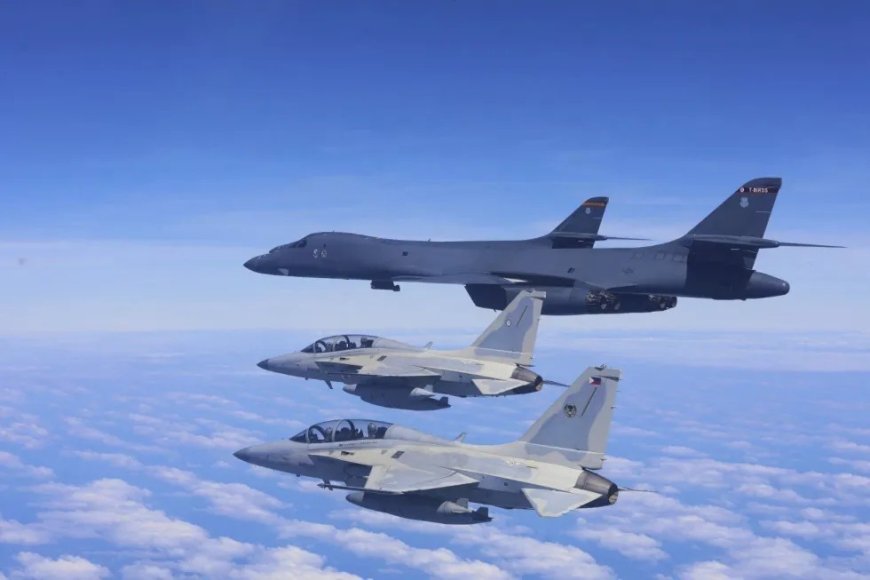A series of naval drills involving the United States and its allies near the Philippines has triggered complaints from Beijing, which asserts control over the entire South China Sea and accuses Manila of collaborating with foreign powers to destabilize the region.
The U.S. 7th Fleet, stationed in Japan, reported that forces from Australia, Japan, the Philippines, and the U.S. carried out a "multilateral Maritime Cooperative Activity" within the Philippines’ Exclusive Economic Zone on Wednesday. These drills, designed to improve defense cooperation and military tactics, took place in the Philippines' waters, though the exact location was not disclosed.
Further exercises involving the U.S., Japan, and France are scheduled for later this week in the Philippine Sea, an area not claimed by China. The exercise will focus on enhancing coordination between the French, Japanese, and U.S. naval forces, while also showcasing their multi-domain operational capabilities. The U.S. aircraft carrier Carl Vinson, the French carrier Charles De Gaulle, and Japan’s Kaga destroyer, along with their escorts and air wings, will participate in the drills starting Saturday.
China's military spokesperson, Tian Junli, condemned the Philippines for allegedly "colluding with outside countries" to carry out "joint patrols," claiming these actions destabilize the region. He accused the Philippines of trying to legitimize its "illegal claims" in the South China Sea and undermine China's maritime rights. This follows a recent U.S.-Philippines joint patrol, with China countering with its own patrols.
China, which claims sovereignty over much of the South China Sea, has ignored a 2016 international court ruling that rejected its claims. It has also built military infrastructure on artificial islands in the region. While China insists it does not disrupt shipping or air traffic in the sea, it fiercely opposes foreign military presence in the area.
The South China Sea is crucial for global trade, with $5 trillion worth of goods passing through annually, and is believed to hold significant oil and gas reserves. China claims it wants to negotiate the sea’s usage, but progress has been slow. Beijing maintains that non-bordering nations, like the U.S., should have no say in its affairs, despite the U.S. maintaining a long-standing military presence in the region, predating China’s sovereignty claims. The U.S. has also conducted "freedom of navigation operations" to challenge China’s territorial claims.













/https://tf-cmsv2-smithsonianmag-media.s3.amazonaws.com/filer_public/54/66/546650fa-26a4-40fd-8d6d-5a7a04540f81/rosetta2.png)
:max_bytes(150000):strip_icc():focal(999x0:1001x2)/robert-prevost-050825-1-39395418ab494da5a3a700c9478e66c8.jpg)















































format(webp))
format(webp))


























